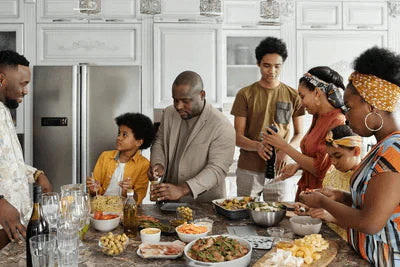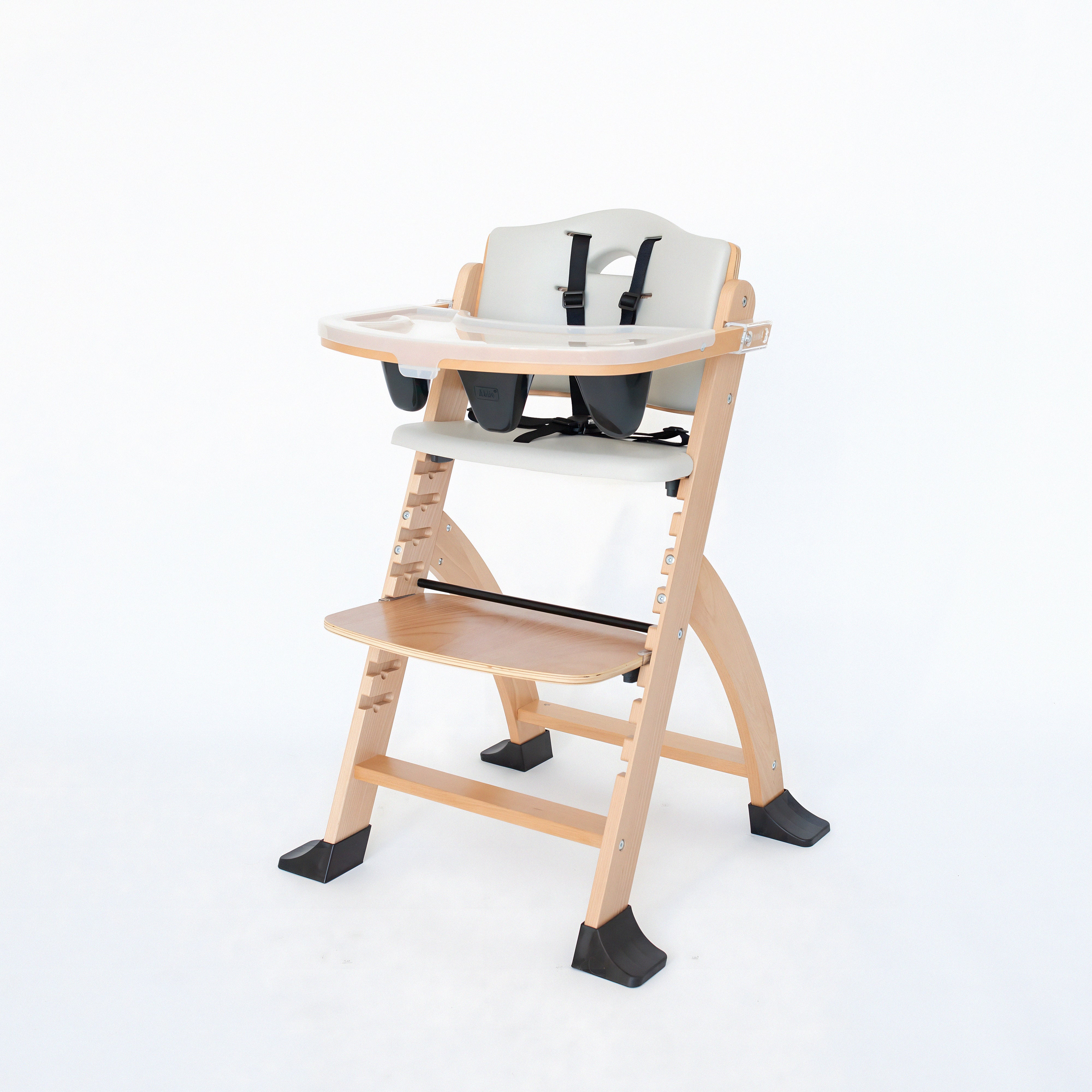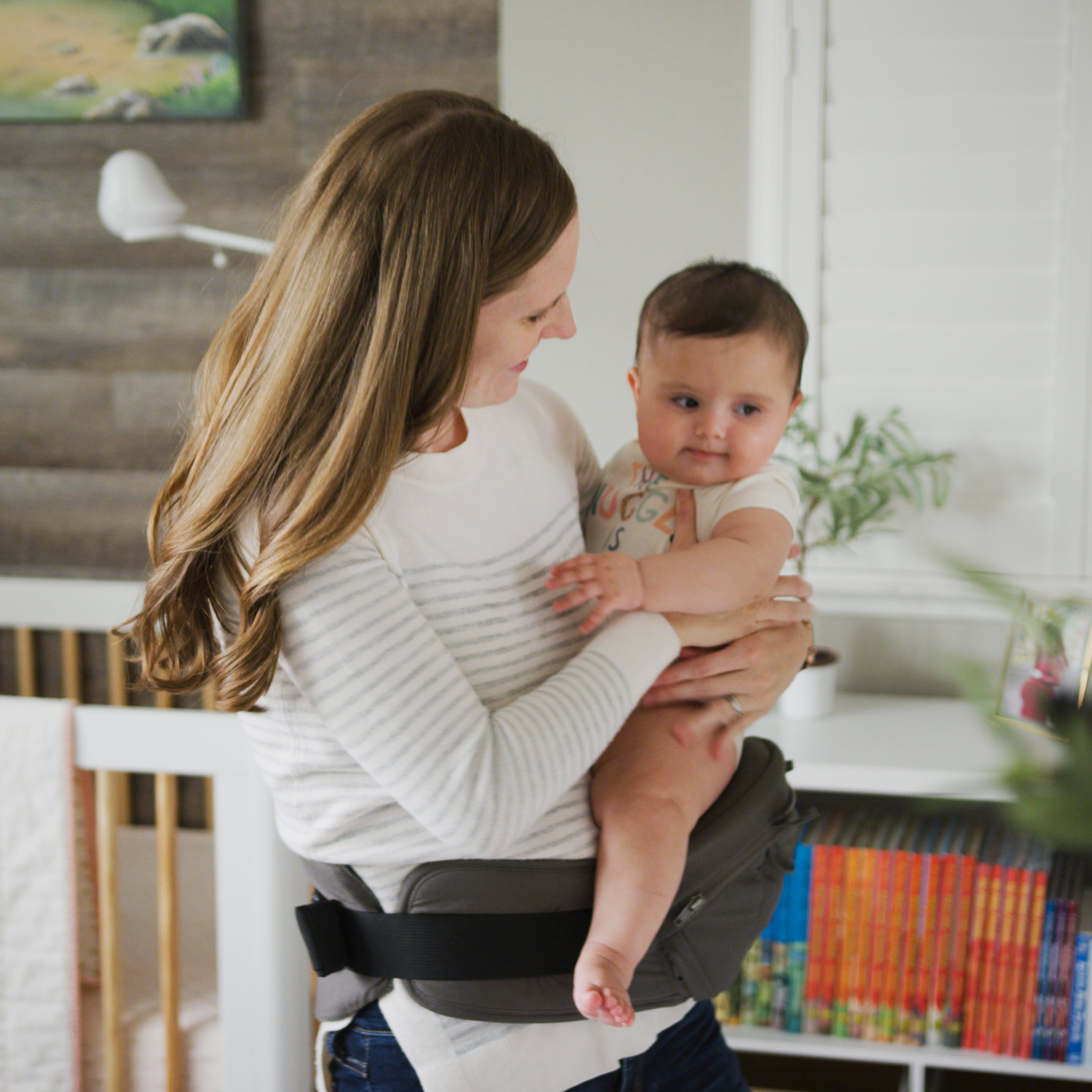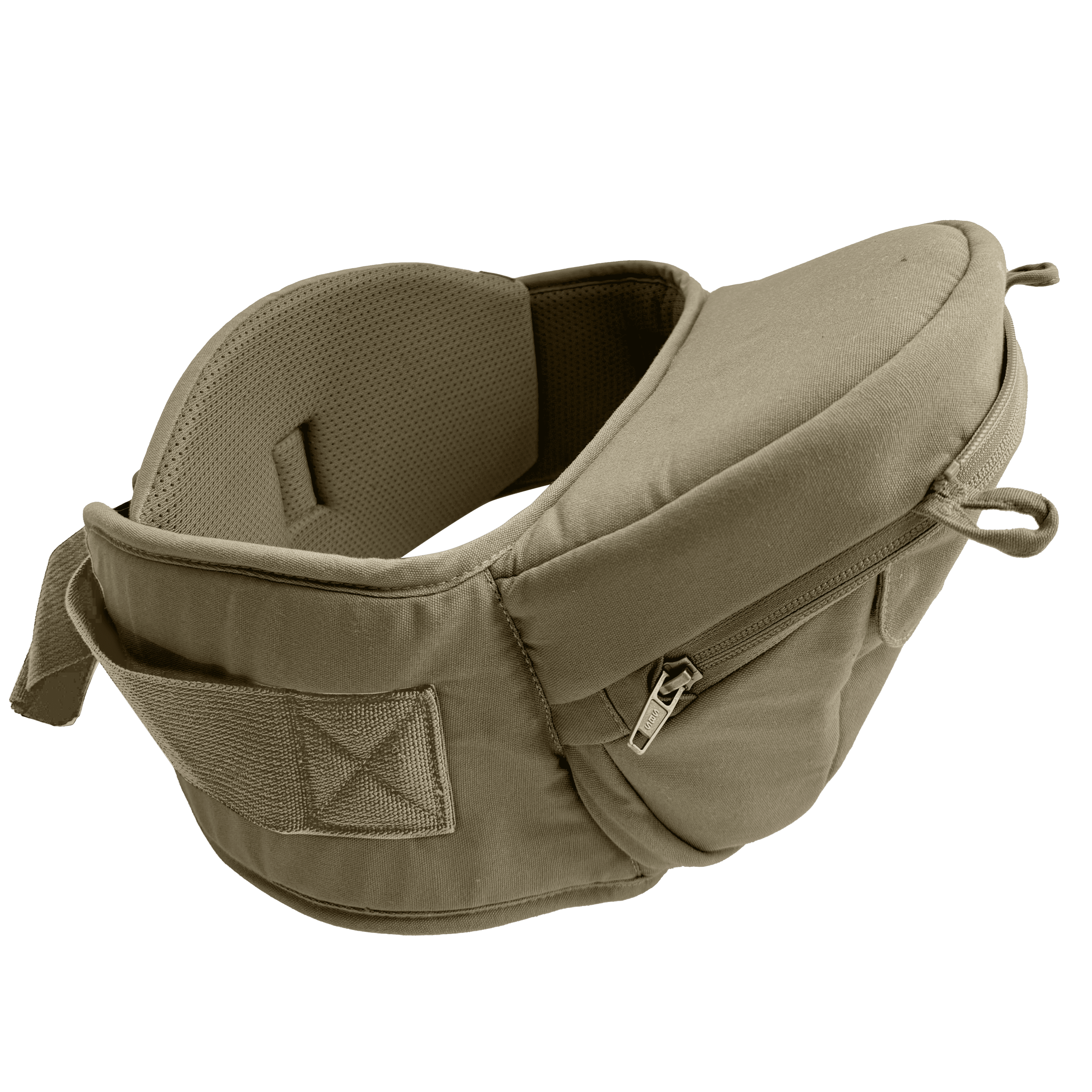An Eco-Friendly Feast: Environmentally Friendly Food and Equipment

When it’s time to feast, there are three crucial parts of the planning process: who’s coming, where is the feast happening, and what are we cooking. However, it can be hard to do all that while still retaining a sustainable mindset. Here are some tips for planning an eco-friendly feast for you and your loved ones, featuring environmentally friendly food, earth-respecting gear (like a sustainable high chair), and conscientious shopping strategies!
Just say “NO!” to Processed Food!
When you go to the grocery store, focus on buying fresh, whole food. Avoid canned sauces, vegetables or foods that have lots of preservatives. Don’t buy food that contains corn syrup, vegetable oils, refined sugar or unpronounceable chemical ingredients. These “foods” are not environmentally friendly: many cause inflammation and the processes by which they’re made are terrible for the environment. If you’re vegan or vegetarian, focus on buying fresh fruits and vegetables, nuts and berries — try to avoid the processed vegan “meats” that are highly processed and sourced from mega soybean farms that ruin topsoil and waste water.
Go Organic!
Find a local farmers market and buy organic, environmentally friendly food directly from an organic farmer. You’ll find all kinds of delicious, artisan foods like grass-fed milk and cheese, gluten-free bread, organic fruit, heirloom tomatoes, fresh cabbages and legumes… the options vary depending where you live. Try to buy seasonal produce that is grown without pesticides. And, while you’re at it, get to know your farmer!

Buy Eco-Friendly Furniture and Accessories
Change doesn’t just start with environmentally friendly food. The best way to make a lasting change for the environment is to make better choices with how you spend your money. Don’t buy trendy furniture covered in toxic coatings. Avoid the “big box” stores. Though convenient and affordable, many of the furniture and accessories from these stores come from sweatshops abroad that are unregulated. They have a huge carbon footprint–in addition to horrible conditions for workers.
Instead, buy from sustainable companies that carefully source materials and treat their workers well. When you buy something like a sustainable high chair, you’re not just buying a safe, helpful tool for your child. You’re helping change the world by shifting the consumer mindset from “cheap and fast” to “mindful and responsible.”

Buy Pastured and Grass Fed Meat
For those of you who eat meat, avoid buying “conventional” meat from the grocery store. Animal confinement operations are the opposite of environmentally friendly food. They rely heavily on fossil fuels, grain production, unfair wages, inhumane animal treatment, and they let manure run freely into our waterways and aquifers.
But in order for these farms to go away, consumers need to stop buying from the huge meat companies. Do some research. Choose grass fed beef. Buy pork from a local farmer who let’s his pigs live outside. Buy chicken and eggs from free-range, pastured farms. Not only will the meat be more nutritious and tasty, but you’ll be supporting humane, eco-friendly animal husbandry and the farmers who steward the land. Before you put your 2 year old in her new sustainable high chair with her cute little bib for a meatball dinner, ask yourself: “Where do those meatballs come from?”
“Eat Your Greens!”
If you have little ones, you know how hard it can be to get them to eat leafy green vegetables. Next time you go to the store, pick up some broccoli, kale, pecans, dried cranberries, grass fed butter and local honey. Melt the butter in a skillet, gently cook the nuts and cranberries, add the kale and broccoli and cook it down until tender, stirring occasionally. Add a drizzle of honey, salt, and pepper.
Cook it down for another minute or two, and voila! Pull out your kid’s sustainable high chair and get ready for a feast! You’ll have a delicious, nutrient-rich dish of environmentally friendly food that will make even the pickiest kiddo eat his vegetables.
Try some other variations:
- add a touch of vinegar or lemon juice with some coconut aminos (instead of soy sauce) for a little bit of tang
- Brown some ground beef/chicken/pork/lamb first and mix in some shredded cheese at the end for a classy twist on a casserole
- Top with goat cheese and grilled chicken strips!
- Add leftovers to a taco shell and add a dollop of greek yogurt (instead of sour cream)
The Future is Sustainable
In addition to the work other companies do with providing environmentally friendly food, Abiie® is passionate about providing high-quality baby gear without harming the Earth. We source wood for our high chairs from sustainable European forests. To minimize waste generated from used baby gear, we designed our high chairs to be modular with easily-replaceable parts. Parents can buy replacement parts from our selection of parts and accessories.
If you have any questions about our mission and the products we develop, please check out our FAQs. If your question isn’t listed there, no worries! Our friendly customer service team will help you out.
Make your life easier and more sustainable with Abiie®.
 USA
USA
 Canada
Canada
 Japan
Japan
 Malaysia
Malaysia
 Singapore
Singapore
 Taiwan
Taiwan





